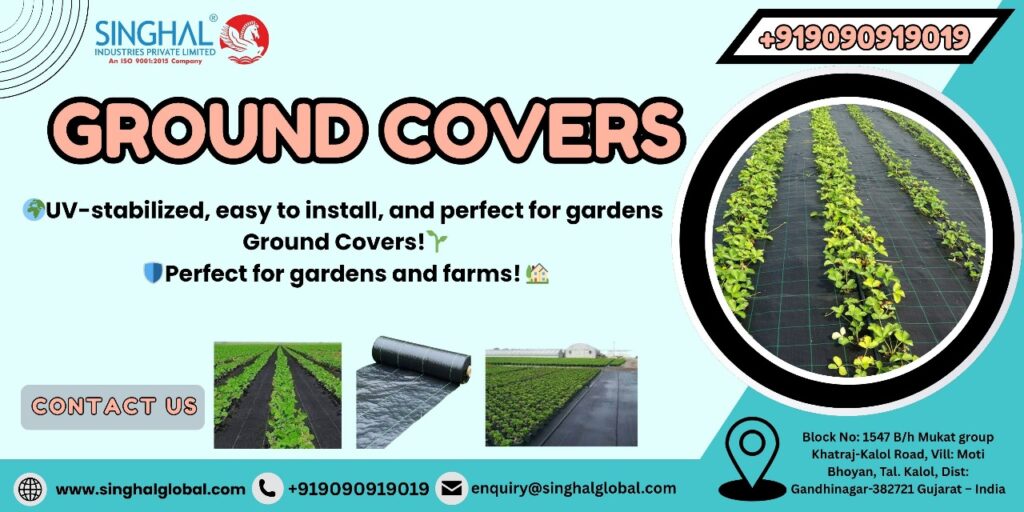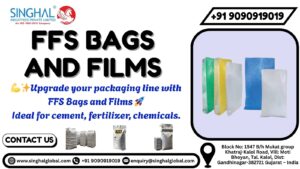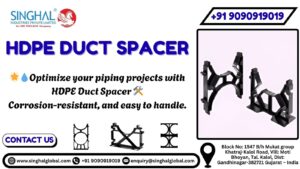If you walk into a nursery that is flourishing and under the lush foliage and tidy rows of seedlings, there’s an unseen hero – the Hdpe ground mat. Elegant and functional ground covers provide a safe haven for the plants they love while providing remarkable efficiency and protection for growers’ activities. In today’s hectic, frequently uncertain horticultural landscape, it is hard to find the option of combining sturdy durability with the appeal of weed-free, well-drained ground.
Of the many options available, ground protection mats and high-density polyethylene covers are revolutionizing nursery management, providing not only reliability but also a greater assurance for all, from small-scale growers to huge commercial farms.
What Are Ground Covers and Mats?
In their essence, ground cover is made of nonwoven or woven plastics, most commonly HDPE or polypropylene, that are sprayed across nursery beds, pathways, and garden plots. The most recent HDPE mats, particularly ones made by top Indian companies such as Singhal Industries Pvt Ltd, offer world-class weed control, water management, and Ground protection mats from traffic, without compromising the health of plants.
Why HDPE?
The material’s inherent resistance to UV rays, rot, tears, and even chemicals ensures that its mats are robust for many years. Certain producers, like Singhal Industries Pvt Ltd, guarantee their mats to be eco-friendly as well as non-toxic and suitable for organic farms, removing the worry of “synthetic” products causing harm.
Real-Life Examples and Insights
In the last monsoon, a nursery in Pune reported that they cut their costs for weed management following the switch to Hdpe ground mat purchased from Singhal Industries Pvt Ltd. One of their gardeners shared, “Honestly, I used to be a weekend warrior, pulling out weeds. Now, I get my Sundays back. The mats take care of all the work!” A surprisingly emotional twist — that plastic sheet snagged more time with the family.
Commercial flower farms share this happiness. A manager at the Bangalore orchid farm described how HDPE ground covers resulted in less plant losses as well as better drainage. “We worried that the mats would cause the roots to get too hot during hot days. They actually helped keep everything cool and moister. This is a little contradictory, wouldn’t you say?”
Main Uses of Ground Protection Mats
- Nurseries: Manage the weeds, control moisture, and encourage healthy root growth while maintaining neat walkways.
- Vegetable gardens: Reduce soil compaction, facilitate irrigation, and enhance harvests.
- Vineyards, orchards: Combining security for pedestrians with long-term weed control.
- Pathways and events: Use to temporarily create high-traffic areas in which you need efficiency as well as simple cleaning.
- Construction and military sites: It’s true that HDPE mats made by large manufacturers like Singhal Industries Pvt Ltd are used for temporary roads and for access in harsh environments.
Are Ground Covers Effective for Weed Control?
In a nutshell, yes! HDPE ground covers block sunlight, hindering the germination of weeds as well as growth. Even the most stubborn broadleaves and grasses struggle to penetrate the tough, tightly-woven material. This not only reduces herbicide usage, but it also reduces the manual weeding process, which reduces both time and environmental impacts.
The paradox? Certain old-school farmers are adamant about the idea of bare soil. But, when faced with the expense and pain of weeding incessantly, the majority rapidly adopt modern garden covers.
HDPE Ground Mats and Their Advantages
HDPE ground mats are superior to alternatives made of rubber or plywood with the following benefits:
- Non-toxic composition (good to use in organic agriculture)
- Excellent load-bearing (machines or foot traffic, even pots that are heavy)
- Modular designs and quick installation allow for easy shaping to fit any plot
- Durability: No rot, scratches, or corrosion unlike mats made from wood
- Sustainability in the environment: Many of them are completely recyclable
For example, Singhal Industries Pvt Ltd provides HDPE mats which are UV-stabilized, waterproof, and sturdy enough to endure decades of wear and tear, even in the scorching Indian sun.
Safety for Organic and Sustainable Farms
Can HDPE ground mats be used in organic farming? The leading producers such as Singhal Industries Pvt Ltd ensure that their mats are not toxic and they do not drain toxic substances thus, making them an excellent choice in organic farming practices which are certified organic. Moreover, the improved draining and control over the weeds decrease the need in the chemical sprays, which ensures more sustainable use of the soil.
Contradictions, Questions, Opinions
Are ground covers an effective solution to nursery headaches? Certain growers, particularly those who are used to “traditional” practices, resist change, believing that modern mats are unnatural. However, the question is, what is the value of sacrificing effectiveness and health of the crop to be nostalgic?
I’m curious about the price. In reality, HDPE ground mats cost only a little more upfront than regular polythene sheets. But the reductions in the amount of labor required, as well as herbicides and the loss of crop yields, tip the scales. The joy of seeing an enviable, weed-free garden is greater than any initial sticker shock.
Conclusion
Ground covers, specifically the long-lasting HDPE ground mats manufacturers such as Singhal Industries Pvt Ltd, have transformed the way nurseries work. The benefits of efficiency, protection, and peace of mind are embedded in every fiber, whether to control weeds, for water management, or to support sustainable agriculture. It’s no wonder that smart farmers everywhere are shifting to mats that last longer, are more durable, and allow them to focus on the things that matter to them: healthy plants and satisfied customers.
Frequently Asked Questions (F&Q)
Q1. What are the main reasons for ground covers?
Ground covers bury weeds and assist in keeping unwarranted moisture. They are also used in safeguarding roots and paths in gardens, nurseries and orchards as well as event grounds.
Q2. Do ground covers work well in weeding control?
Yes. They prevent the penetration of sunlight into the soil preventing most of the weeds to grow and also allow the movement of nutrients and water.
Q3. Are there ground covers that may be applied in vegetable gardens?
Definitely. HDPE ground mats are highly in demand to cover soil as they regulate the temperatures and promote the yield of vegetables even during extreme growth.
Q4. Are organic farms safe?
Absolutely. Since non-toxic and certified material such as that provided by Singhal Industries Pvt Ltd, HDPE mats is organically cultivated and of standards.
Q5. Who is the largest exporter of ground covers?
Singhal industries Pvt ltd is the prominent manufacturer of HDPE mats and ground covers and exporter in India and suppliers of farms, nurseries and landscaping work to the world.









